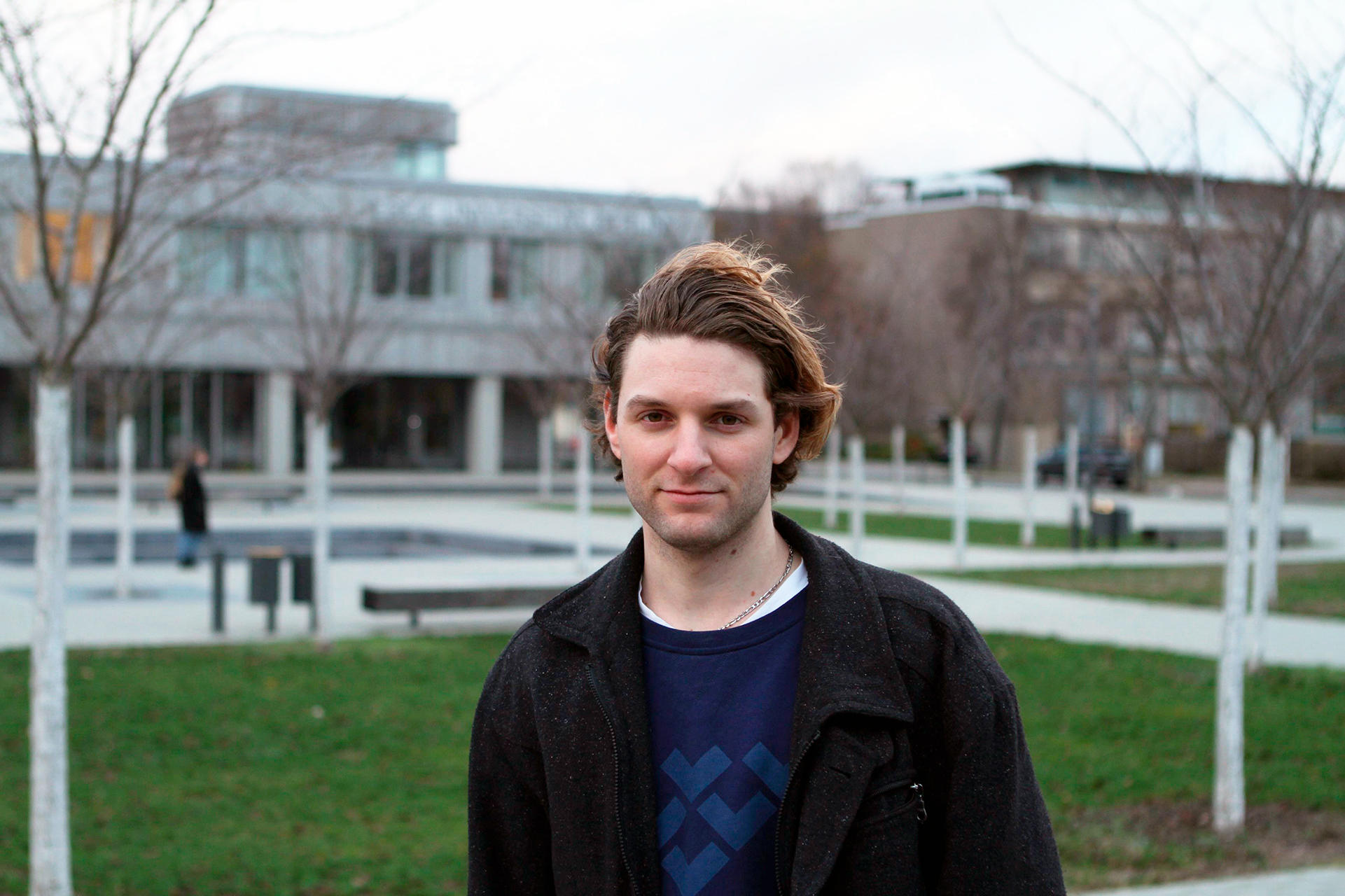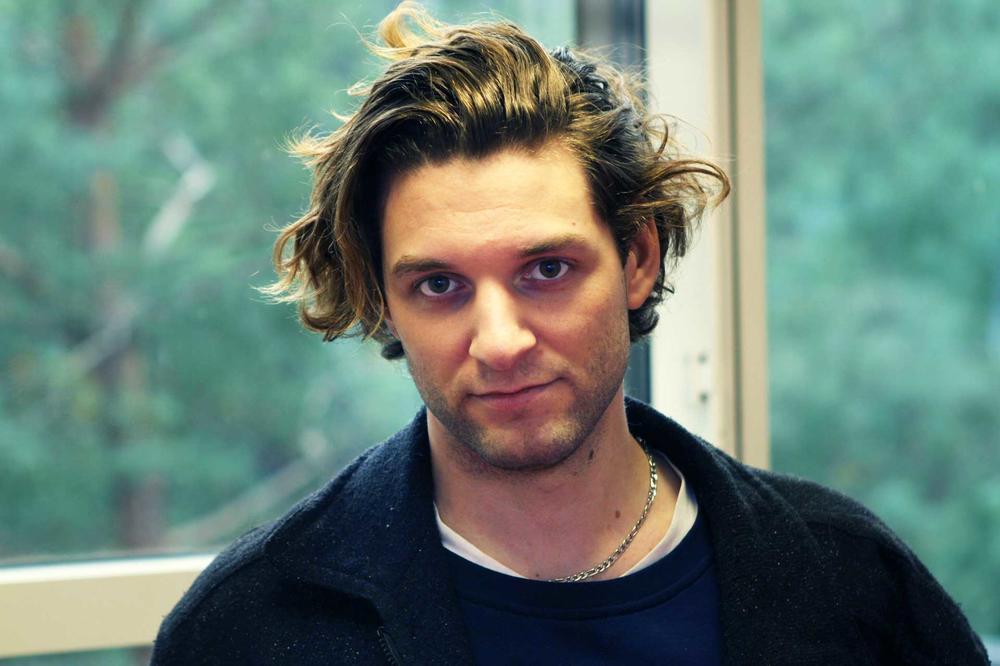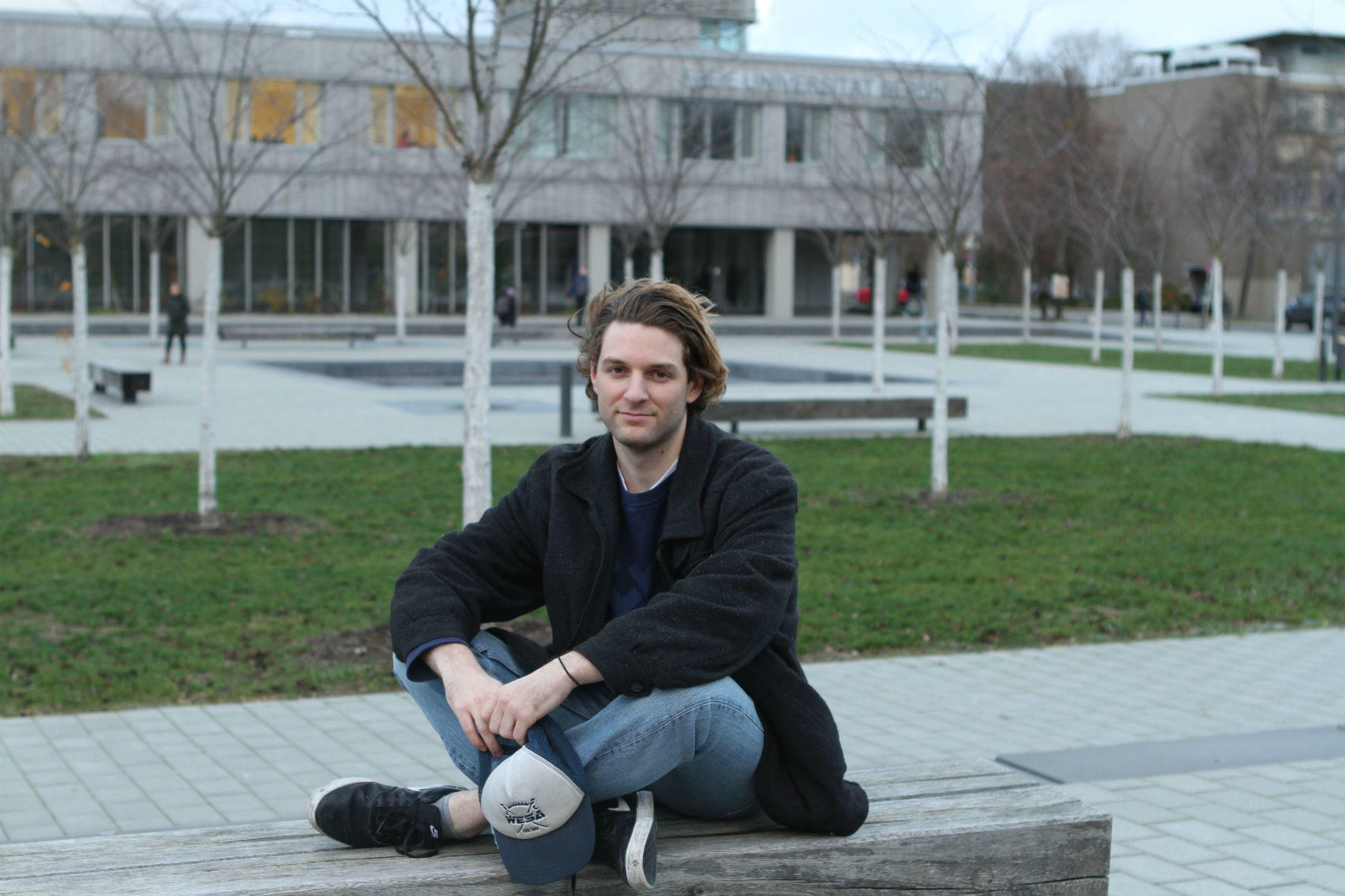Interview with Vincent Mallet
Vincent Mallet (23) is a Double Master student in Physics and studying at the Freie Universität Berlin and the École Polytechnique Palaiseau. In the interview, Vincent recounts how his fascination for physics and technology evolved and talks about the benefits of the Double Master degree in Physics.
Vincent, where does your fascination for physics come from? Did your family or teachers effect you or was it just an inborn interest?
Well, I think both the personality and the family have played a big role. As a child, I was curious about everyday technical installations and could watch railroad switches turning or ski lifts gliding up and down for hours. My father is an engineer. Many relatives from his side are intellectuals or scientists. However, my practical side was shaped rather by my mother’s family, who all were bakers and loved working with their hands. In experimental physics, I really benefit from my hand working skills and practical disposition.
Why is physics fascinating for you?
Physics links the world of abstract ideas to the real, material world. That means, physics connects philosophy and mathematics, which operate with abstract laws, to engineering and application. Physics provides technicians and developers with concrete laws and rules to apply.
To me, physics is modern alchemy and physicists are a kind of “hackers” trying to overcome the limitations of natural laws. Sometimes I feel like a big child who breaks things to find out what is inside and how it works.What is the focus of your interests in physics?
At the beginning of the studies, I was heavily interested in the application of physics to technology and engineering. The further I progressed in physics, the sharper my interest in theory became. Every time, when I tried to answer the new question why something is working this or that way, I was delving even deeper into the theory of physics.
The thesis of my experimental master project is atomic monolayer and bilayer of transition metal dichalcogenide. At the Freie Universität Berlin, I am a member of the research group of Kirill Bolotin performing quantum research. This field of work is intriguing and serves to discover new materials for many kinds of technical application. We work on creating physical systems with controllable quantum-mechanical Hamiltonians in order to realize technologies including quantum computers, photovoltaic cells, and molecular sensing.
How does your typical day look like?
20 percent of the day goes to reading scientific works, 50 percent on the experimental work in the lab. The remaining time I spend in discussions with group members to figure out what possible solutions for different kinds of questions and problems might be.
So you spend half the day in the laboratory. Isn't that exhausting?
No, it is what experimental physics is all about – building test machines and testing hypothesis in the lab. During my internship in the research lab of the ESPCI school, which is a part of PSL University in Paris, I not only was proud to be at the premises where Marie Curie used to work, but I also loved to work in the lab on topics and materials that would change our technological future very soon.

What are these topics and materials?
At the ESPCI, I worked on so-called “quantum dots”. Quantum dots are very small semiconductor particles. Only some nanometres in size, they are central to nanotechnology. Due to their fluorescent properties, quantum dots find its applications, among others, in biodetection, especially in medical devices.
Another trendsetting topic is graphene. Graphene is a 2D material consisting of a single layer of carbon atoms arranged in a hexagonal lattice. It is the strongest material ever tested and is nearly transparent. It conducts heat and electricity efficiently. These unique qualities make graphene another promising material for applications in different fields: electronics, space technology, even living and fashion.
What are the benefits of the Master degree program?
First of all, it is an excellent scientific exchange between the two great schools of physics – the French and the German. Already in the students’ time, we learn to transfer the expertise and knowledge from one school to another. Second, we develop a multicultural competence, which is indispensable in globalized research. And third, having two degrees of two renowned universities is a big plus for future career.
As a Double Master you have a good insight into a French and a German university. What are the differences?
French universities seem to practice a more theoretical approach. At the FU Berlin, I experienced a more hands-on approach. In fact, the scientific and educational level of both universities is comparable.
What I like at the Freie Universität Berlin is a great campus and a very special mix of different people coming from all around the world. Here you feel free, relaxed and accepted as you are.Where do you feel more comfortable in Berlin or Paris?
Berlin felt like home just after a short time of being here. In Paris, one meets a demanding, even fastidious mentality. Actually, I love my native city Marseille most. Due to its port history, it was the city of poor people, who were working hard and were still proud of themselves. Marseille is world-open, multicultural and, in fact, very much like Berlin.
Are there any things in Germany that are unusual for you?
Yeah, for instance, people waiting at the red light at a crosswalk in the night or the existence of Schufa (Schufa is the German register listing personal debts) (he laughs).
Do you have any favourite locations in Berlin?
My favourite location in Berlin is Holtzmarkt. This sustainable urban quarter incorporates different spaces for living, working, and creativity. There are bars, event locations, co-working and creative spaces, even children playing grounds here. It is a place to meet mavericks and game-changer who design a new urban lifestyle. I like the creativity and experimental spirit of this place.
Are you a creative person?
My creative side is the music. Since the age of 15, I have been a huge fan of synthesisers and keyboards. At a start, I just asked myself: How do the sounds come from an electronic device? As a big why-asker, I even dissembled the synthesisers and looked inside to understand how they work. Later on, I have been experimenting with electronic sounds, creating music and writing songs.
At my parents’ home in France, I have a proper music studio. Here in Berlin, I just have a small one. Currently, I am working on my repertoire of pop songs in French – to entertain and to dance. Some of the songs use a mix of languages: English, French, and Italian – that kind of language that we, the Erasmus generation, are using every day.
Do you have some other hobbies?
I love sports like riding bicycle, skating, and skiing. But the major part of the free time I devote to music and parties.
What is your idea for the time after the Master’s program?
I would like to continue physical research, simultaneously pursuing my passion for electronic music. Physics and music do not have to be mutually exclusive. I know this career path is not typical in science. Now, we live in the age of disruptive technologies as well as unusual pathways. So I am in good spirits that his career idea could work.
Keywords
- 2D materials
- Double Student
- École Polytechnique Palaiseau
- ESPCI school
- French-German Master Program
- Kirill Bolotin
- Paris
- quantum dots
- semiconductors

